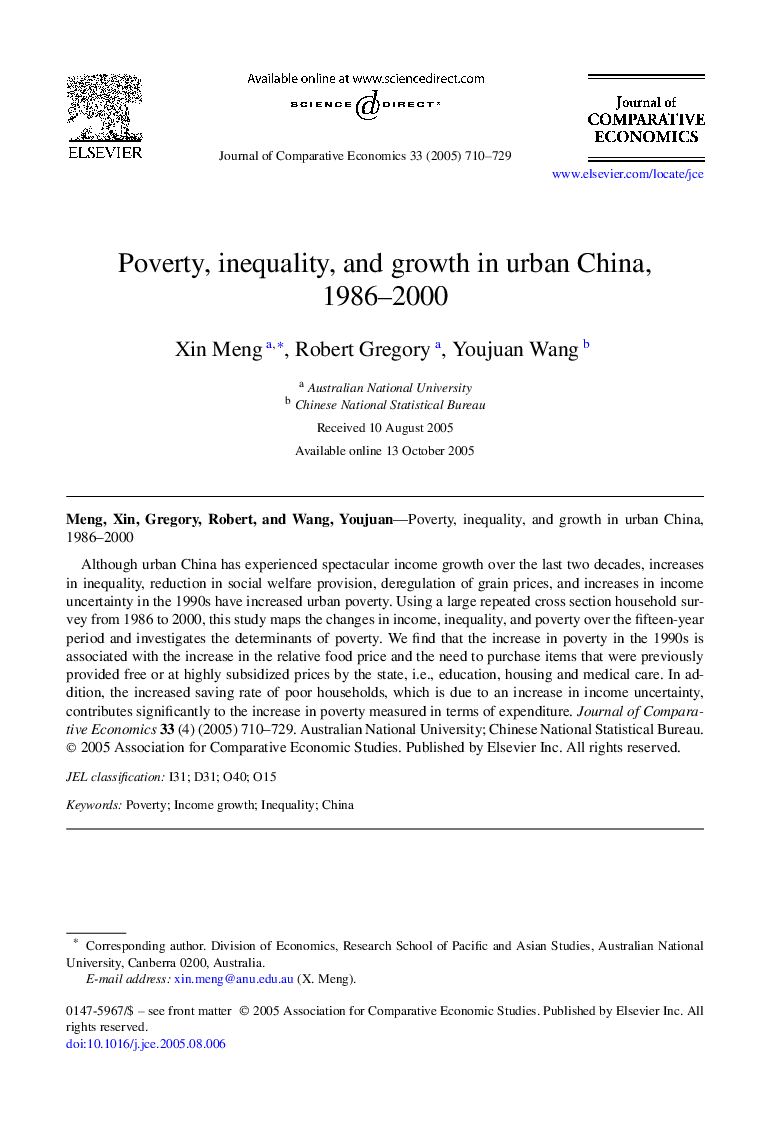| Article ID | Journal | Published Year | Pages | File Type |
|---|---|---|---|---|
| 9554532 | Journal of Comparative Economics | 2005 | 20 Pages |
Abstract
Although urban China has experienced spectacular income growth over the last two decades, increases in inequality, reduction in social welfare provision, deregulation of grain prices, and increases in income uncertainty in the 1990s have increased urban poverty. Using a large repeated cross section household survey from 1986 to 2000, this study maps the changes in income, inequality, and poverty over the fifteen-year period and investigates the determinants of poverty. We find that the increase in poverty in the 1990s is associated with the increase in the relative food price and the need to purchase items that were previously provided free or at highly subsidized prices by the state, i.e., education, housing and medical care. In addition, the increased saving rate of poor households, which is due to an increase in income uncertainty, contributes significantly to the increase in poverty measured in terms of expenditure. Journal of Comparative Economics33 (4) (2005) 710-729.
Related Topics
Social Sciences and Humanities
Economics, Econometrics and Finance
Economics and Econometrics
Authors
Xin Meng, Robert Gregory, Youjuan Wang,
